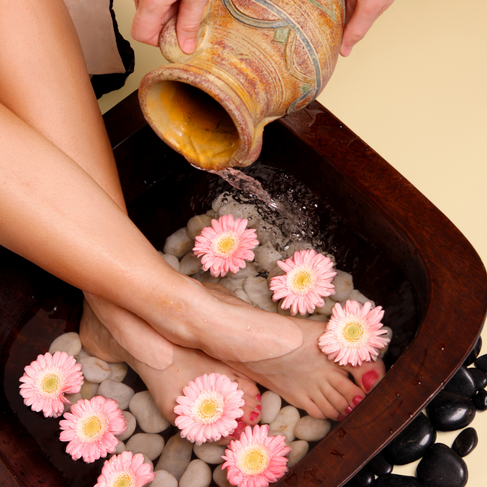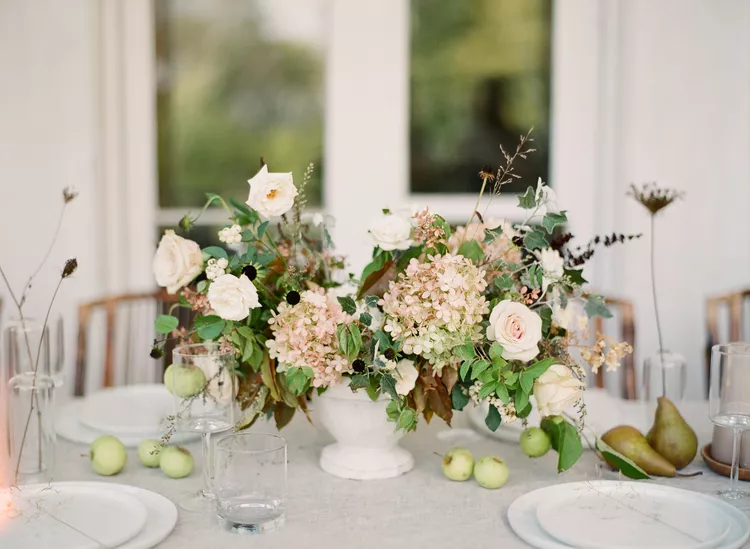8 Ways To Care For Your Mental Health While Planning Your Wedding
- emmalouiseweddingplanner

- Mar 12, 2023
- 5 min read
Updated: Sep 17, 2025
Take care of planning your wedding and your mental wellbeing.

Mental health is finally getting the long-overdue spotlight it deserves. In our not-so-distant history, countless mental health conditions were swept under the rug and ignored, which is shocking considering that an estimated 15 million people - 30% of the UK population - live with one or more long-term conditions, and more than 4 million of these people will also have mental health problem, per data from the Mental Health Foundation. This is why it is so crucial to be open and understanding when it comes to mental health, as one of your loved ones or even your spouse may be suffering in some way, shape, or form. Caring for mental health while planning your wedding is quite important, too. This blog has been created to give you an understanding of mental health and how to support this through planning your wedding. While there are a myriad of factors that contribute to and exacerbate mental health conditions, stressful life events, such as planning a wedding, can sometimes be the catalyst, with all of the external pressures of family and friends, one of the things that can quickly lead to mental health struggles in the process of wedding planning is a loss of sense of self. Anxiety of living up to expectations—whether yours or someone else’s—and a simultaneous confusion of what is within your control and what is not, can be overwhelming and feel isolating. Body-image issues associated with the overwhelming pressure placed on your wedding day can also play a contributing role in aggravating your mental health. The pressure for the bride to look perfect can easily kick up pre-existing body image and eating insecurities. The old cliché of the bride starving herself before the wedding is very real and very risky.

To top it all off, your wedding planning to-do list is likely more than you originally bargained for. In fact, so many brides and grooms are caught off guard by just how all-encompassing planning a wedding can truly be—even if you have hired an expert team of vendors. Wanting to be in control and having difficulty allocating duties can lead to a real build-up of pressure that can be quite difficult to manage. Caring for your mental health while wedding planning does not have to just be another to-do on your laundry list, but rather a healthy addition to your daily life that relieves stress and emotional burdens. Here, I share best-kept secrets for caring for your mental health throughout the wedding planning process and beyond.
Build a Daily Practice of Mindfulness
Meditation comes with countless benefits, including a reduction in stress, alleviation of anxiety and tensions, an increased sense of being grounded, and more. A daily practice has proven mental and physical health benefits including reduced anxiety and depression symptoms, reduced obsessive thoughts and negative thought cycles, and increased positive affect. While 30-minute guided meditations or 15-minute breathing exercises are surely useful, taking just 5-10 minutes a day to journal, write gratitude lists, or read affirmations can provide many of the same benefits. Start small and make it yours—it does not have to look like anything specific. Just try to allow yourself some space without self judgment. Work On Letting Go of Perfectionistic Ideas
You are far from alone if your wedding day is something you have spent the better part of your life dreaming about. Many of us know exactly what we want on our special day and have had it all in mind for years and even decades. However, perfectionism can set us up for disappointment and many negative feelings. Instead, I recommend focusing on enjoying the process and creating a planning environment that will not burn you out and lead to unhappiness in any way. People would remember your wedding day more if they had fun and enjoyed it.
Talk to Someone Uninvolved in Wedding Planning
Whether it is a friend or a therapist, I recommend finding an outlet outside of wedding planning where you can release some of your excitement, concerns, anxieties, and hopes to an unbiased party. Whatever you are feeling at any given time is valid and you should be allowed to share this with someone unattached to your wedding day. If you are struggling, find a therapist who can help you explore and realign planning with your own values so that you are able to make decisions that authentically reflect you.
Do Activities with Your Partner Other Than Plan
With so much to get done before your wedding day, it is no surprise if you feel like planning is all you and your partner do and talk about. But this does not have to—and should not—be the case. At the core of the excitement of planning a wedding is your connection to someone with whom you want to build a life. I recommend setting aside some time to foster the romance and connection that is so integral to your future marriage. If you are struggling with feelings of isolation or loneliness in the process, share them with your partner. Let them in and allow them to help support your emotional wellbeing.
Practice Deep Breathing
Deep breathing, which comes right from the diaphragm, resets the all-important amygdala from its fight-or-flight stress response, and has been linked to a reduction in anxiety and depression. He recommends taking 5-10 complete cycles of deep, calming breaths at least once a day and at moments when you feel extra stressed. Try breathing for a count of five seconds in, holding it for five, and letting it out for at least five. If you are doing this correctly, it definitely feels like you have just taken a mild tranquilizer without the drowsiness.
Unplug For At Least 30 Minutes a Day
If you find yourself scrolling through your social-media feeds for far longer than you had care to admit, you are certainly in good company. However, doing so can create an environment clouded by unnecessary pressure and unrealistic expectations. I recommend disconnecting from both electronic devices and social media, especially bridal platforms, for at least 30 minutes a day. Taking time to unplug and disconnect from the constant stream of emails and alerts will allow you to interact with people in front of you.
Recite Positive Affirmations
Self-affirmation with improvements in an individual’s ability to problem solve in a stressful situation. If you are not familiar with affirmations, they are short, powerful statements that are often positive and self-encouraging. They can be anything from “I am calm, focused and present,” to “every day I feel more and more relaxed about planning my wedding.” These sentences are what you want to feel, stated in the present tense. He recommends reciting these out loud twice daily or even recording them so you can easily play back and repeat them, which makes it much easier to fit it into your day.
Sneak in Physical Movement
Whether or not exercise is part of your regular routine, wedding planning can feel so all-encompassing that you have little-to-no time for anything else. However, fitting in movement is essential for mental health. Physical exercise to be as effective at aiding in mental-health conditions such as depression as antidepressants. All you need is 20 minutes of some kind of cardio as many days of the week as you can fit in, and you will find that coping with the planning process and everyday life is much easier.
Hope this blog helps you with ways of coping with mental health through planning your wedding. If you would like to discuss anything regards to planning your wedding please do not hesitate to contact myself Emma Louise Wedding Planner

Hope you enjoyed the read
Emma Louise x












Comments